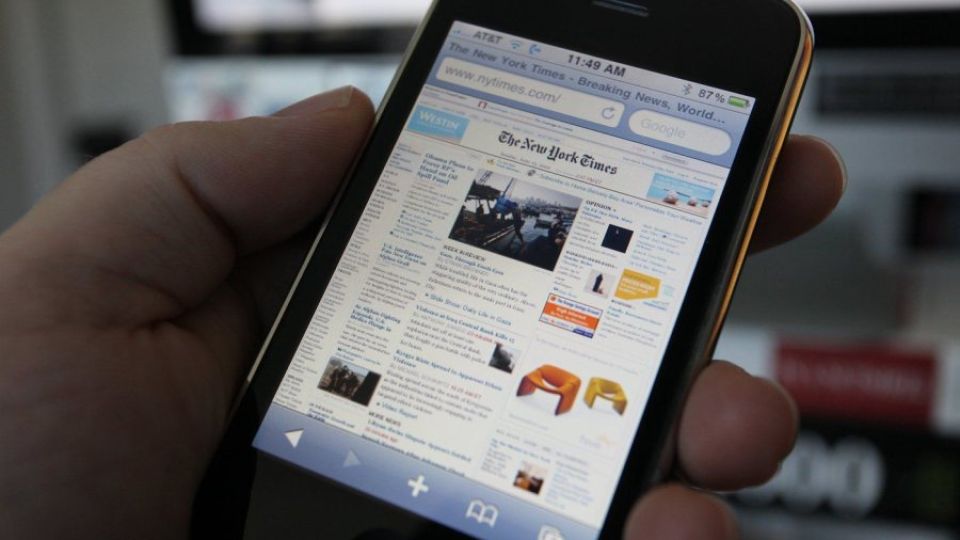April 3, 2023
BOSTON – AI is becoming more prevalent in everyday situations but there is still distrust. The challenge is overcoming that barrier.
When you scan the headlines on your favourite news app each morning, do you ever stop to think who — or what — wrote the story?
The assumption is there are human beings doing the work. But it’s also possible an algorithm wrote it. Artificial Intelligence is capable of producing text, images and audio with little to no human intervention. For instance, the neural network called Generative Pre-trained Transformer 3 (GPT-3) is capable of producing text — a fictional story, a poem or even a programming code — virtually indistinguishable from text written by a person.
Major media outlets such as The Washington Post, The New York Times, and Forbes have automated news production with the aid of generative AI – AI algorithms that autonomously produce textual content. With great advances in machine learning and natural language processing, the difference between content written by a human and content produced by advanced neural networks such as GPT-3 can be indiscernible even in domains quintessentially humanistic like poetry.
As we come to rely more on AI-generated information in everyday settings, the question of trust becomes more important.
Recent studies have examined whether people believe AI-generated news stories or trust AI-generated medical diagnoses.
They found that people are mostly sceptical of AI. A machine can write an accurate story full of facts, but readers will still second-guess its veracity. And while a program can give a more accurate medical analysis than a human, patients are still more likely to go with their (human) doctor’s advice.
The conclusion is people are more likely to distrust AI if it makes a mistake than an individual human. When a reporter makes an error, a reader isn’t likely to think all reporters are unreliable. After all, everyone makes mistakes. But when AI makes a mistake, we are more likely to mistrust the entire concept. Humans can be fallible and forgiven for being so. Not so machines.
AI content is not generally marked as such. It’s rare for a news organisation to flag in the byline that the text was produced by an algorithm. But AI-generated content may lead to bias or misuse, and ethicists and policymakers have advocated for organisations to transparently disclose its use. If disclosure requirements are enforced, future headlines might include a byline that tags AI as the reporter.
Research examined how disclosing use of AI in news generation affected news accuracy perceptions. The results strongly corroborated the AI aversion account: disclosing the use of AI led people to believe news items substantially less, a negative effect explained by lower trust toward AI reporters.
Media outlets are faced not only with the challenges of grabbing the attention of readers in a highly competitive digital marketplace, but also of earning their trust.
This is true of any organisation that uses digital technologies to inform their customers, whether that be a regulator, business or academic institution. In fact, the robustness of the negative effect of AI in research suggests that AI aversion applies to other domains where AI generated text is used.
AI is a tool. There certainly needs to be oversight and regulation, but it also has the potential to do a lot of good.
AI could democratise healthcare, for instance by producing an app for a skin cancer risk assessment. People unable to afford a dermatologist, or who simply don’t have access to that type of care, could be alerted to that primary red flag — go check this mole.
AI has the potential to make prescriptively good outcomes available to people who otherwise would not have access to them. And so the question is, if AI has the potential to be used for such positive ends, how can we understand how people view it and how can we foster uptake?
If forced to disclose AI-generated content, what can an organisation do to retain trust in the information that it communicates? The answer is not yet clear, but the hope is current findings will raise awareness of the influence of disclosure of AI-generated content on perceived accuracy and trust and encourage greater research on this topic.
When AI serves in an assistant role to a person who retains the veto or remains the ultimate decision-maker, it’s more likely people would be fine with AI doing some things as long as the final call is made by a human being.
Chiara Longoni is a behavioural scientist and Assistant Professor of Marketing at Boston University’s Questrom School of Business. She conducts interdisciplinary research on psychological responses to artificial intelligence across healthcare, recommendation systems, automated content generation, and government services.


